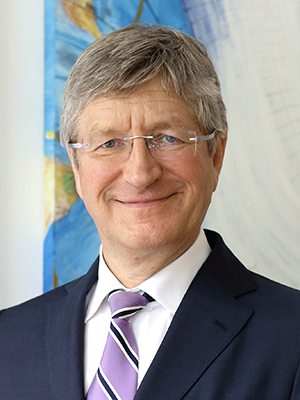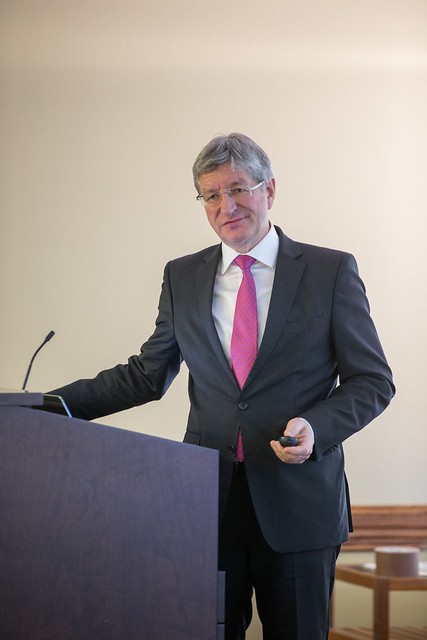
On December 3, 2015 from 3:30 – 5:00 p.m. in 301 Rudder Tower, the Texas A&M Energy Institute will host a Distinguished Lecture in Energy by Prof. Dr.-Ing. Wolfgang Marquardt, Chairman of the Board of Directors of Forschungszentrum Jülich.
The German “Energiewende” – A Scientific Challenge
Prof. Dr.-Ing. Wolfgang Marquardt
Chairman of the Board of Directors of Forschungszentrum Jülich
Abstract
The German government decided after the Fukushima incident in 2011 to drastically change its national energy policy. The core of this political decision is the accelerated long-term transformation of the energy supply system in Germany. This so-called “Energiewende” covers ambitious objectives, including the shut-down of all German nuclear power plants until 2022, a significant reduction of fossil power plant emissions and the gradual replacement of fossil energy by environmentally friendly renewable energy while maintaining a secure and cost-effective energy supply. The following concrete goals should be achieved by 2050: a reduction of the electricity consumption by 80 % and a reduction of the total energy consumption by 50 %, compared to 2008 figures, a reduction of greenhouse gas emissions by 80 %, compared to 1990 figures, and a fraction of 80 % of renewable electricity generation. Obviously, these objectives can only be reached if all societal stakeholder groups join forces and contribute with their specific competences. In particular, the science system has to emphasize relevant areas in energy research including integrated energy systems, smart heat and power grids, long-term storage facilities, solar, wind and bio-based generation of heat and electricity, flexible and clean fossil power plants, and e-mobility, among others. Major research programs have been set up accordingly by the German government.
This talk provides a short overview on the objectives, the status and the perspectives of the German “Energiewende” in the first part. In the second part, it will present selected activities in energy research at Forschungszentrum Jülich (FZJ) and its research partners. Approximately 1,000 people, with a multi-disciplinary background, contribute to the scientific and technological basis for transformation of the German energy system at FZJ. Research at FZJ emphasizes materials and systems problems and addresses entire technology chains, which integrate electricity generation by solar energy, energy conversion, CO2 valorization, as well as energy storage. A selection of research highlights creating solutions for a future energy concept will be presented for illustration, mainly focusing on (1) green hydrogen production, (2) power-to-X / X-to-power and (3) electrical energy storage.

